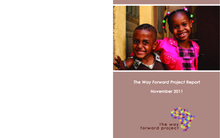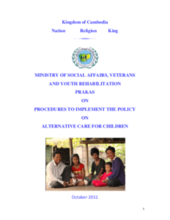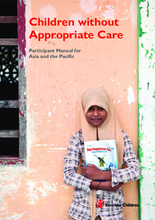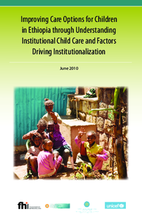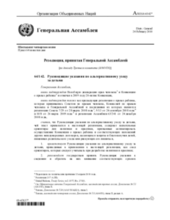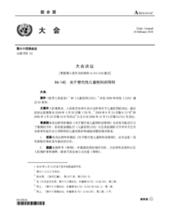Displaying 181 - 190 of 231
The study explores the post-care experiences of young Jordanian care leavers. Material struggles were similar to peers internationally. The distinct difference for Arab care leavers was the cultural influence. Patriarchy, family life and collectivism impact the care leavers' experiences. A cultural dimension increases understanding of leaving-care.
Foster youth in the US do not appear to be receiving many forms of help that are called for in federal law. Over one-third did not receive help they would have liked to have received. System factors play a stronger role than individual indicators of need in help receipt. Independent living services should be more widely available and better targeted.
The Congressional Coalition on Adoption Institute’s The Way Forward Project brought together a group of international experts to discuss opportunities and challenges facing governmental and non-governmental organization leaders in six African nations (Ethiopia, Ghana, Kenya, Malawi, Rwanda, and Uganda) as they work to develop systems of care that serve children in and through their families.
This Prakas is intended to define roles and responsibilities of relevant competent agencies and establish procedures, operational guides, and forms to implement the Policy on Alternative Care for Children.
A retrospective exploratory study on 73 family group decision making conferences for children referred to institutional public services in Kenya to investigate the short, medium and long term conference outcomes on child’s safety, permanency and wellbeing.
This manual offers a training session targeted at policy makers, professionals and paraprofessionals who are already working on programs to support children without appropriate care, or who may begin work in this area. This workshop focuses on children in developing contexts, who require support within their families and those who need an alternative care placement.
This resource offers principles to frame an agency's foster care recruitment and retention practices related to siblings.
Findings and recommendations of the first national study of its kind in Ethiopia to study child care institutions, institutionalized children, and factors driving institutionalization.
The Guidelines for the Alternative Care of Children were endorsed by the United Nations General Assembly on 20th November 2009, in connection with the 20th anniversary of the UN Convention on the Rights of the Child.
The Guidelines for the Alternative Care of Children were endorsed by the United Nations General Assembly on 20th November 2009, in connection with the 20th anniversary of the UN Convention on the Rights of the Child.

